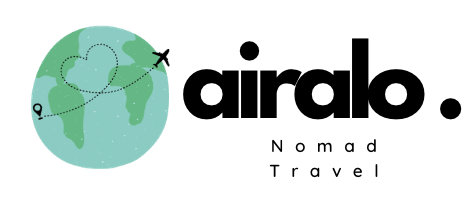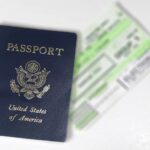
With the rise of the digital nomad lifestyle, more and more countries are offering specialized visa options for freelancers, remote workers, and business owners alike. As one of the most popular travel destinations in the world, France has also launched a digital nomad visa in recent years, aiming to attract remote workers and global talents to live and work in France.
1. France Digital Nomad Visa Overview
Although France does not have a visa specifically for digital nomads, digital nomads can still live long-term and work remotely by applying for other visa categories. Below are three common visa types available for digital nomads, with detailed requirements and features for each visa:
1.1 Long-term residence visa (Visa de long séjour)
- Applicable objects: This visa is for non-EU citizens who plan to stay in France for more than 90 days.
- Visa features:
- live and work: Applicants with this visa can legally live and work in France, including working remotely. While France does not have a dedicated “remote work” visa, this visa allows the holder to engage in legitimate work activities, including working online.
- financial requirements: Applicants need to provide documents proving their financial independence to ensure that they can maintain basic living expenses in France. This usually includes bank statements, sources of income, contracts or work arrangements, etc.
- Accommodation requirements: Applicants need to provide proof of accommodation in France, usually a rental contract or an accommodation statement from the landlord.
- health insurance: Applicants need to provide proof of French health insurance to ensure that it can cover their medical needs during their stay in France. This insurance can be purchased through France’s social security system or private insurance companies.
- Visa validity and renewal: Usually long-term residence visa is valid for 1 year and can be renewed. If the applicant has plans to continue living and working and meets the conditions, the visa can be extended.
- Applicable people: Suitable for digital nomads who want to live in France long-term and already have remote working arrangements, especially those who plan to stay longer than 90 days and have sufficient financial means.
1.2 Self-employed visa (Visa de travailleur indépendant)
- Applicable objects: This visa is for digital nomads who plan to work as a freelancer, self-employed or as an independent contractor in France.
- Visa features:
- Freelance and independent contractors: This visa allows digital nomads to start freelance or independent businesses in France, including but not limited to technical consultants, programmers, designers, writers, translators and other occupations.
- Financial independence requirements: Applicants need to prove that they have a sufficient source of income to support themselves in France and are not dependent on public funds. Proof of income, contracts, business plans, etc. are usually required to be submitted.
- Tax and social security requirements: People holding this visa need to register as self-employed persons in France as required and pay taxes and social security premiums. This process may require communication and registration with the French tax authorities or the social security system.
- freedom of work: The self-employed visa allows the holder to engage in many types of independent work in France, not limited to a specific employer or project, and is suitable for digital nomads who have multiple clients or are free to arrange their work.
- Visa validity and renewal: This visa is generally valid for 1 year and can be renewed based on personal circumstances. When renewing the visa, applicants need to provide income reports and tax records and other materials to prove their financial independence and work continuity.
- Applicable people: For digital nomads who have regular clients or projects and want to start their own freelance business or work as an independent contractor in France. This visa is particularly suitable for applicants who already have remote work clients and are able to provide financial self-sufficiency.
1.3 “Talent Passport” visa (Passeport Talent)
- Applicable objects: This visa is created for highly skilled foreign professionals, entrepreneurs and artists, and is especially suitable for digital nomads who want to start international business or participate in high-skilled projects in France.
- Visa features:
- Highly skilled and entrepreneurial: This visa is suitable for entrepreneurs, highly skilled professionals or those working on projects in France in specific fields who plan to expand their international business in France. Applicants are typically required to demonstrate a high level of skill in a field or a successful business background.
- Work and residence permissions: People holding a “Talent Passport” visa can carry out work or entrepreneurial activities in France related to their high skills. This visa allows not only residence but also work, and is especially suitable for digital nomads who want to expand their careers in France.
- Specific requirements: Applicants need to provide relevant proofs, such as work contracts, enterprise registration certificates or relevant materials of technical achievements. If you are an entrepreneur, you need to provide proof of establishment or investment in France. If you are a highly skilled professional, you will need to provide relevant academic qualifications, experience or industry-recognized certificates.
- Visa validity and renewal: This visa is usually valid for 4 years (can be 1 year in some cases) and can be renewed based on the applicant’s continued work needs. When renewing, applicants need to prove that their employment or business activities in France are still valid and meet the high-skill requirements.
- Accompanied by family members: This visa also allows the holder’s family members to apply for residence together, and they can work legally in France.
- Applicable people: Suitable for digital nomads who plan to launch high value-added businesses or projects in France, especially entrepreneurs and freelancers with strong professional skills, technical background or business goals.
2. Application conditions
Different types of visas have different requirements for applicants, but most visas require applicants to meet the following basic conditions, including income level, health insurance, financial independence, etc. The following are the common application conditions for French long-term residence visas, self-employment visas and “Talent Passport” visas, detailed as follows:
2.1 Income requirements
As a remote worker or freelancer, applicants need to demonstrate that their income is sufficient to support their life in France. Specific income requirements vary depending on the visa type and the applicant’s personal circumstances:
- long term residence visa:
Applicants need to provide proof of a stable source of income, which is generally required to cover basic living expenses in France. Depending on your lifestyle and the city you live in, the monthly cost of living in France ranges from 1,000 to 2,500 euros (higher in larger cities such as Paris). Therefore, applicants usually need to demonstrate a stable income of several thousand euros per month.
If the applicant does not have a regular source of income, he or she must also provide bank deposits or other financial evidence to prove that he or she has the ability to maintain life in France. - self-employment visa:
This visa has stricter income requirements. Applicants must be able to prove that their income from freelance or independent contracting work is sufficient to support their life in France. France generally requires self-employed people to have an annual income of at least a certain level (starting at around €15,000) to ensure their financial independence. In addition, applicants also need to provide contracts with customers, proof of income sources, and tax records. - “Talent Passport” visa:
Income requirements are generally higher for applicants who plan to conduct international business or work in highly skilled jobs in France. Applicants need to prove that they can maintain a high level of economic self-sufficiency in France through work or business activities. This may include proof of the company’s turnover, employment contracts, investments or income from other economic activities.
2.2 Health insurance requirements
Digital nomads must have valid health insurance to cover their medical expenses while in France. Here are a few common options:
- international health insurance:
Many digital nomads choose to purchase health insurance with global coverage, which not only covers their medical needs in France, but also accommodates requirements in other countries. International health insurance plans usually cover inpatient, outpatient, emergency medical assistance and other services. Applicants are required to provide an insurance policy and proof of insurance coverage to ensure that they can cover the medical expenses they may incur in France. - French social insurance system:
Digital nomads can join France’s social security system (PUMA) if they live permanently in France and meet certain conditions (such as tax residency). This system covers most basic medical expenses, but usually requires a certain history of social security contributions. Applicants need to provide relevant materials to the French social security agency to prove that they meet the conditions for joining. - private health insurance:
If the applicant does not meet the conditions for joining the French social security system, purchasing private health insurance is also a common option. Private insurance can cover different types of medical services, including hospital stays, medical outpatient visits, drug costs, etc.
2.3 Proof of work
Most visa types require applicants to provide proof of work placement or income to ensure they qualify for remote working or self-employment status, rather than working in the local French labor market:
- long term residence visa:
Applicants will need to provide documentation proving they are working remotely, such as a work contract, project agreement, employer letter or other form of proof of income. For digital nomads without a regular employer, you can provide project records, client contracts, or tax returns from your work as a freelancer. - self-employment visa:
Applicants need to provide supporting documents for self-employment, such as personal company registration certificate, tax registration certificate, customer contract, etc. This type of visa requires applicants to demonstrate that they have a long-term and stable source of clients and are able to maintain their work and life in France. - “Talent Passport” visa:
For this visa, applicants are required to provide documents proving their work or business activities in France. This may include work contracts, company incorporation certificates, cooperation agreements, investment evidence, etc. Applicants for this visa usually need to demonstrate that their work or projects in France have a positive impact on the French economy, innovation or culture.
2.4 Financial independence
No matter which visa you apply for, financial independence is an important requirement. Applicants need to demonstrate that they are not dependent on French social benefits or government support while in France:
- Bank deposit certificate:
Applicants usually need to provide a certain amount of bank deposit certificate to prove that they have sufficient funds to maintain living expenses in France. Bank deposits usually need to be several times the cost of living in France, and deposit records must be maintained for a certain period of time to prove their financial independence. - Proof of income source:
Applicants need to provide other forms of proof of financial sources, such as remote work income, investment income, or business income. Some visas require applicants to meet a certain monthly or annual income as proof of financial independence. - No Social Welfare Dependency Statement:
Most visas require applicants to declare that they will not be dependent on social benefits or other public support in France. This means that applicants cannot rely on social welfare systems such as unemployment benefits and low-income subsidies while in France unless they officially work in France and participate in social security contributions.
3. Visa application process
Applying for a digital nomad visa in France involves multiple steps, each of which requires careful preparation and confirmation. The following is a more detailed visa application process:
3.1 Choose the appropriate visa category
Choosing the visa category that best suits your situation is a crucial first step in the application process. Different visa types have different application conditions and approval standards:
- Long-term residence visa (Visa de long séjour): For non-EU citizens who plan to stay in France for more than 90 days. Ideal for those who plan to live long term and work remotely.
- Self-employment visa (Visa de travailleur indépendant): For those digital nomads who intend to work in France as freelancers or independent contractors. This visa is suitable for specific types of freelance work (such as design, programming, consulting, etc.).
- “Talent Passport” visa: For foreign professionals and entrepreneurs who have high skills or plan to start international business in France. If you plan to start a business, investment or other high-end technical work in France, this visa category is for you.
Choose the most appropriate visa category based on your personal work patterns, sources of income and planned length of stay in France.
3.2 Prepare application materials
Visa applications usually require submitting a series of documents to ensure you meet all requirements. Common application materials include:
- Valid passport: The passport should be valid for at least six months and have at least one blank page.
- Visa application form: A completed and signed French visa application form, which can be downloaded from the French Consulate website.
- photo: A recent passport photo that meets certain size and quality requirements.
- Proof of income: Provide bank deposit certificates, work contracts, tax records or other proof of income to ensure that your income meets visa requirements. Different visa categories have different income requirements.
- Proof of health insurance: Proof of valid medical insurance that covers your medical expenses during your stay in France. If you choose international health insurance, you need to provide a copy of the insurance policy issued by the insurance company.
- Proof of residential address: Such as a rental contract, hotel reservation or other documents that can prove that you have a fixed residential address in France.
- Proof of work: Self-employed visa and “Talent Passport” visa applicants need to provide contracts, project certificates, company registration documents, etc. to prove that you are a remote worker or business owner.
Please ensure that the materials are complete and meet the requirements. Missing any documents may cause the application to be delayed or rejected.
3.3 Submit application
Depending on where you live, you can choose between the following two ways to submit your visa application:
- Submit via French Consulate: Find the nearest French consulate or embassy in your area and submit paper application materials. The consulate will provide specific submission guidance depending on the country or region where the applicant is located.
- Apply online: For certain visa types, France allows online applications through the official visa website. You will need to complete the application form on the website and upload all required supporting materials. Application fees can also usually be paid online.
Make sure to submit all materials before the visa application deadline and check all documents for accuracy to avoid processing delays.
3.4 Visa interview
In some cases, visa applicants may be required to attend an interview, particularly applicants for self-employed visas or Talent Passport visas. The interview is usually held at a French consulate or embassy, and the interviewer will ask questions about your personal situation, work arrangements, and long-term plans for France. Common interview questions include:
- What exactly do you do as a remote worker or freelancer?
- Why did you choose France as your place of residence?
- How do you plan to maintain financial independence in France?
- Is your health insurance coverage adequate?
Be prepared to give clear and detailed answers that demonstrate your plans to live and work in France and emphasize your financial independence and health care.
3.5 Waiting for approval
The visa approval process usually takes weeks to months, depending on several factors:
- Visa category: Processing times for long-term residence visas, work visas and “Talent Passport” visas may differ, with self-employed visas generally taking longer to be approved.
- Applicant’s region: French consulates in different countries process visa applications at different speeds. Some consulates may take longer to process due to the large number of applicants.
- Material integrity: If your application materials are complete and there are no problems, the approval process will go more smoothly. If additional materials or further review are required, this may result in extended processing times.
During this period, applicants can track the status of their visa application through the consulate or online system to ensure that they are informed of the approval progress in a timely manner.
3.6 Obtaining a visa
Once the visa application is approved, the French consulate or embassy will notify the applicant to collect the visa. After receiving the visa, the applicant can travel to France to live and work according to the visa category and the specified period. Please note the following:
- Visa validity: After the visa is approved, the applicant should arrange to live and work in France according to the validity period of the visa. Long-term residence visas are usually valid for up to one year, after which they may need to be renewed.
- Comply with visa regulations: While in France, applicants must abide by all visa regulations, such as not engaging in unauthorized work, not exceeding the period of stay allowed by the visa, etc.
4. Living and working as a digital nomad in France
After obtaining a French digital nomad visa, digital nomads will have the right to live and work in France, but there are many details that need to be paid attention to in actual life. Below are details on some key areas to help you better adapt to living and working in France.
4.1 Accommodation options
France’s accommodation market is very diverse and caters to digital nomads with different needs. You can choose from the following types of accommodation:
- short term rental apartment: In big cities such as Paris and Lyon, many digital nomads choose to use platforms such asAirbnbor short-term rental companies) rent apartments. These apartments are often furnished, offer more flexible rental terms, and are ideal for digital nomads who need short-term accommodation.
- Shared apartment: Shared apartments (colocation) are very popular in France, especially in big cities such as Paris and Marseille. This way not only helps you save on accommodation costs, but you can also meet other people, especially living with other digital nomads or local residents, making it easier to integrate into the community. You can use the website such asLeBonCoinFind the right shared apartment.
- B&B by the sea in southern France: If you prefer a quieter living environment, B&Bs in Provence, Cote d’Azur and other places in southern France are ideal choices. The natural scenery here attracts many digital nomads, especially those who like beach life. There are plenty of options for short-term B&Bs or vacation rentals. Platforms such asBooking.comProvides various types of short-term rental properties.
- long term lease: For digital nomads who plan to live for a long time, they can choose to rent a house through French rental websites (such asLeBonCoinorPAP) Sign a long-term lease. This usually applies to remote workers who have a stable source of income and intend to live in France for a long time.
Accommodation prices vary by region, with rents in larger cities such as Paris being higher, while rents in the south of France and other smaller cities are relatively cheap.
4.2 Taxation and social security
As a non-EU citizen, you need to understand the French tax system and social security system when living and working in France:
- global tax system: France implements a global tax system, which means that no matter which country the income comes from, people who live in France for more than 183 days must report their global income to the French tax office and pay tax. Tax rates are graded based on income level, up to a maximum of 45%. Therefore, if you plan to live in France for more than 183 days, it is important to understand the French personal income tax (impôt sur le revenu) system.
- Sécurité sociale: If you live in France for a long time, especially if you are a self-employed visa holder or freelancer, you may need to join the French social security system. Social security includes not only medical insurance, but also unemployment, pensions and family benefits. According to French regulations, freelancers are usually required to register and pay corresponding social insurance fees. you can passURSSAFLearn more about Social Security.
- tax treaty: France has signed double taxation treaties with many countries. Digital nomads should check if there are similar treaties with their host country when applying for tax matters to avoid double taxation. More information can be found in the Tax Agreements section on the French Tax website.
4.3 Language and culture
The official language of France is French, and although many people in big cities like Paris, Lyon, and Marseille can speak English, mastering French is crucial for daily life and career development as a digital nomad.
- learn french: In order to better integrate into French society, many digital nomads choose to take French courses. These courses come in many forms, including language schools, university courses and private tutoring. French language schools such asFrench Alliance, offering courses for learners of all language levels.
- cultural differences: France has a long history and cultural tradition, and is slightly different from other countries in terms of social etiquette and work habits. For example, working hours and holidays in France are relatively fixed, many companies implement longer lunch times, and work-life balance is very important. Understanding the cultural background and daily habits of France will help digital nomads better adapt to the local environment.
4.4 Digital Nomad Community and Support
France has a thriving digital nomad community, especially in big cities, and many digital nomads use social platforms, events and shared workspaces to connect, share resources and expand their businesses.
- digital nomad community: France’s big cities (such as Paris, Marseille, Lyon) have active digital nomad communities. These communities not only exist online, but also through social media platforms such asMeetup) organizes activities and often holds various offline gatherings, industry lectures and entrepreneurial exchange activities. Participating in these events can help digital nomads better network and learn about industry trends.
- Shared workspace: France has a large number of co-working spaces, especially in cities like Paris, Marseille and Lyon. These spaces provide digital nomads with high-speed internet, comfortable work environments, meeting rooms and a variety of amenities. Some workspaces also offer social events and networking opportunities so you can meet other remote workers and entrepreneurs. Common shared office spaces includeWeWork, The Canteen, andThe Tankwait.
These coworking spaces are more than just a place to work, they’re an environment that supports personal growth, collaboration and inspiration. They often offer flexible memberships for digital nomads, with the option to rent workstations by the day, month or year.
4.5 Daily life and living costs
The day-to-day costs of living in France vary from city to city, with Paris being more expensive and other French cities being more affordable. Expenses such as food, transportation, medical care, and entertainment can often be controlled through careful budgeting:
- Food & Shopping: France is famous for its gastronomic culture, with supermarkets and markets offering fresh produce and high-quality food. When buying food, you can choose large supermarkets (such asCarrefour, Leclerc) or local market. The catering industry in France is also very developed, with a wide range of options for dining out, ranging in price from simple cafes to high-end restaurants.
- transportation: France’s transportation system is very developed, especially in big cities. Paris and other cities have convenient public transportation (metro, buses, trains), and France’s high-speed rail (TGV) can easily connect most cities, making it suitable for digital nomads who frequently travel for business. If you plan to stay for a long time, you can choose to purchase a monthly or annual transportation pass. For more information about public transportation in France, you can visit the official Paris transportation website.
- medical insurance: After joining the French social insurance system, you will enjoy basic medical protection. France has a high level of medical care, but non-residents without social security or private health insurance may have to pay higher medical costs. Digital nomads often choose to purchase international health insurance to ensure they have adequate medical coverage while in France.
5. What should I do after my visa expires?
In France, long-term residence visas held by digital nomads are usually renewable. If you wish to continue living and working in France after your visa expires, here is a more detailed renewal process and precautions:
5.1 Preparations before renewal
Renewal is not automatic, so you need to plan ahead to ensure your documents are complete and meet French government requirements. It is recommended to start preparations three months before your visa expires to ensure sufficient time to deal with any problems that may arise.
1. Proof of income
As a remote worker or freelancer, you need to prove that you still have sufficient financial resources to support your life in France. The French government requires income levels to meet certain standards, especially in areas with higher living costs such as Paris. The following forms of proof of income are required when renewing:
- bank statement: Bank statements for the past 3 months are generally required, showing a steady inflow of income. The bank balance should cover your living expenses, usually requiring at least a few thousand euros.
- Contracts and invoices: If you are a freelancer or remote worker, provide signed contracts with your clients and invoices issued to prove your source of income. You will need to demonstrate that you are not dependent on the local French job market and are continuing to work remotely.
- tax records: If you have other income outside of France, you may also need to submit an updated tax return to prove your source of income and tax compliance. Some visa types may require tax records from the past year to ensure you are not dependent on the French social welfare system.
2. Proof of health insurance
Under French law, all foreigners residing in France must have valid health insurance. When renewing, you will need to provide up-to-date proof of health insurance to ensure you can cover your medical expenses while in France. Proof of health insurance can be obtained through:
- international health insurance: If you choose to continue using international health insurance, make sure the insurance company can provide coverage of medical services in France, and ensure that the insurance validity period is consistent with the visa validity period. You will also need to provide a copy of your policy and proof of payment.
- French social security: If you have already joined in FranceSocial Security System (Sécurité Sociale), you need to provide updated social security card and payment records. Some visas require holders to join the French social security system, especially long-term residents.
3. Proof of work
You will need to prove to the French Immigration Service that you are still a remote worker or freelancer and will not be looking for work on the local French job market. Supporting documentation may include:
- employment contract: If you are a remote employee, provide your work contract proving your employment relationship with your employer and your arrangements for remote work.
- Customer agreement or commercial contract: If you are a freelancer, provide a work contract with the client that proves you are working remotely through freelancing.
- Invoice or proof of payment: Prove that you have received income from customers. You can use invoices or income confirmation documents to prove that you still maintain the source of income from remote work.
4. Proof of residential address
In order to prove that you are still legally living in France, you need to provide your latest residential address information. Common proof of residence documents include:
- lease contract: Provide your rental contract in France to prove that you still live in France. If you sign a new contract with your landlord, make sure it is valid and states the length of your tenancy.
- utility bill: If you pay your utility bills through your landlord or property management company, provide utility bills from the last few months showing where you live in France.
5.2 Renewal application process
The renewal process is relatively straightforward, but there are still steps to follow. The following is the detailed process:
1. Submit renewal application
- Submit via official website: Most visa renewal applications can be made through the official website of the French Immigration Service, and some applications need to be made throughOfficial website of the French Immigration Office (OFII)Submit the electronic form and upload the necessary documents.
- Submit materials in person: In some cases, applicants may need to submit their renewal application in person at the local immigration office in France (such as Préfecture). You need to bring all relevant supporting documents and ensure that the documents are complete to avoid delays in your application due to missing documents.
2. Interview or supplementary material requirements
- Interview arrangements: Certain visa types may require applicants to attend an interview. During the interview, the immigration officer will ask about your employment situation, sources of income, and your long-term plans to live in France. You need to be prepared with a clear explanation that you have not breached any conditions of your visa.
- Supplementary material: If your application materials are incomplete, or the Immigration Bureau requires further proof of your situation, you may need to submit supplementary materials in time after receiving the notification. This may include proof of income, bank statements, etc.
3. Waiting for approval
Renewal approval times typically range from a few weeks to a few months. The specific processing time depends on the workload of the USCIS in your area and the complexity of the application materials. During this period, it is recommended to keep an eye on the progress and respond to any requests from the Immigration Bureau in a timely manner.
4. Get renewal decision
- Approval notification: If your renewal application is approved, you will receive a renewal notification and will continue to remain legally resident in France. You may need to go to the immigration office to get a new residence card or visa.
- Visa refusal notice: If your application is not approved, you will receive a rejection notice and the reasons for the rejection will be provided. You can decide whether to appeal based on the circumstances, or look for other visa categories to apply for.
5.3 Special considerations for visa renewal
- Legal stay issues: If you are still waiting for the renewal result after your visa expires, make sure your stay in France is still legal. According to French regulations, if you have submitted a renewal application after your visa expires and the application is under review, your stay will be considered legal. However, you should not engage in any unauthorized work until your application is approved.
- Plan ahead: Avoid starting your renewal application when your visa expires. It is best to start preparing materials 3 months in advance and submit the application as early as possible. This will avoid any status issues after your visa expires, especially if you plan to continue living and working.
5.4 Options after visa refusal
If your visa renewal is not approved, or if you have other problems while staying in France that prevent you from continuing to live legally, digital nomads have several options:
- leave france: In the event of visa renewal being refused, the most immediate option is to leave France as required by French law. Usually, a departure period will be provided after a visa is refused. You need to leave the country on time to avoid violating French immigration laws.
- Apply for other types of visas: If you do not meet the renewal requirements of the current visa category, you can consider applying for other suitable visa categories, such as work visa, investment visa, etc., provided that you meet the requirements of the new visa category.
- seek legal help: If you encounter special circumstances or visa refusal issues, you can contact a professional immigration lawyer for consultation and appeal. An attorney can help you evaluate whether there are legal loopholes or help you file an appeal to regain legal status.
in conclusion
Although France does not have a dedicated category for digital nomad visas, remote workers and freelancers can still successfully live and work in France through long-term residence visas, self-employed visas and “Talent Passport” visas. Each visa category has different applicable groups and requirements. Applicants should choose the most appropriate visa type based on their personal circumstances and plans. During the application process, it is critical to ensure that basic requirements such as income, health insurance, and financial independence are met. As a country full of opportunities, France offers a variety of flexible visa options for digital nomads, allowing freelancers who want to conduct international business and perform high-skilled work in France to start their careers in this country with rich culture and high quality of life. and life.





